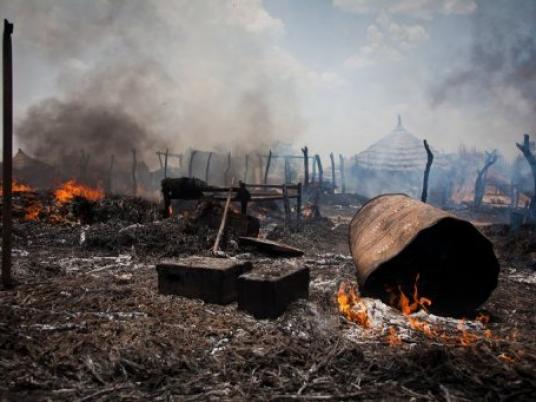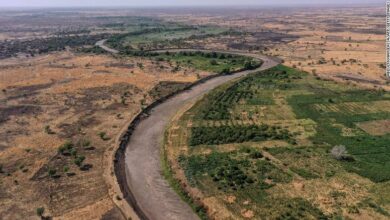
South Sudanese troops on Friday recaptured the key northern oil city of Bentiu from rebel forces, officials said, following days of fierce fighting that has forced tens of thousands to flee the area.
A spokesman for President Salva Kiir said the city, one of two state capitals that were in rebel hands, was "now under our control".
There was no immediate comment from the rebels, although the independent Tamazuj radio station said the city — already ransacked and mostly emptied of its civilian population — fell back into government hands around midday after rebel fighters melted away in the face of a huge offensive.
Quoting witnesses, the radio also said there was fighting within the ranks of the rebel force prior to the fall of the city, and that several fighters were shot dead by government forces while trying to seek shelter at a UN compound.
The government also said it was mobilising thousands of additional troops, who are expected to join the offensive on Jonglei State capital Bor, now the last remaining rebel stronghold.
In neighbouring Ethiopia, regional mediators said they were still optimistic that peace delegates from the two sides meeting in a luxury hotel in Addis Ababa would agree to ceasefire and bring an end the nearly month-old conflict.
The United Nations has said that "very substantially in excess" of 1,000 people have already been killed in the fighting, and that nearly a quarter of a million people have fled their homes — many of them fleeing a wave of ethnic violence.
However the International Crisis Group, an independent think-tank, said reports from across the world's newest state indicate that the real death toll is far higher.
"Given the intensity of fighting in over 30 different locations in the past three weeks, we are looking at a death toll approaching 10,000," ICG analyst Casie Copeland said.
Human right situation 'critical'
The United States, which was instrumental in helping South Sudan win independence from Khartoum in 2011, also said it feared the country risked imploding and urged the two sides to immediately agree to a truce.
"Today, tragically, the world's youngest country and undoubtedly one of its most fragile democracies is in danger of shattering," US Assistant Secretary for Africa Linda Thomas-Greenfield told lawmakers in Washington.
"Each day that the conflict continues, the risk of all-out civil war grows as ethnic tensions rise."
Fighting began on December 15, when President Salva Kiir accused his former deputy Riek Machar of attempting a coup, and rapidly spread with government units divided along ethnic lines and local militia forces siding with the rebels.
Both sides are accused of having committed atrocities, amid a wave of ethnic violence pitting Kiir's majority Dinka tribe against Machar's Nuer community. South Sudan's oil production, crucial to its economy, has dropped by an estimated 20 percent following the evacuation of oil workers from northern parts of the country.
An estimated 60,000 people have sought UN protection from the ethnic violence, forcing the Security Council to approve an extra 5,500 peacekeepers who are only slowly arriving.
UN peacekeeping chief Herve Ladsous said the reinforcements would allow UN forces "to go into a more pro-active footing around the bases and beyond, because the situation in terms of violations of human rights remains terribly critical".
Mediators said the peace talks were moving forward despite the ongoing fighting, and that delegates from both sides were reviewing a draft ceasefire agreement.
The proposal calls on both sides to "cease all military action aimed at each other" and to "agree to immediately cease all military operations and freeze their forces," according to a draft seen by AFP.
In addition, it called for immediate humanitarian access to permit the "urgent supply of aid to all displaced populations," according to the proposal.
However, the imprisonment of 11 high ranking politicians close to Machar remains a major stumbling block, and the rebels have maintained their demand that they be freed before agreeing to a truce. Kiir, meanwhile, has insisted they will not be set free without a legal process.




